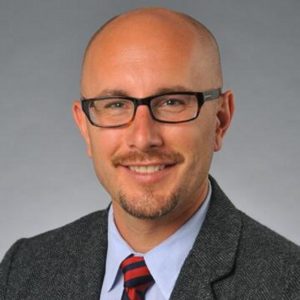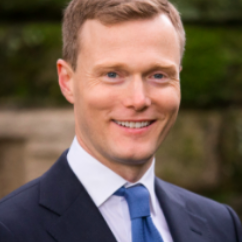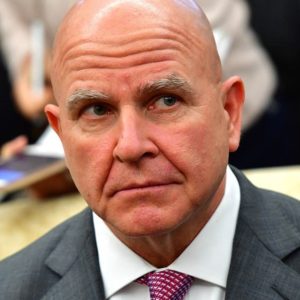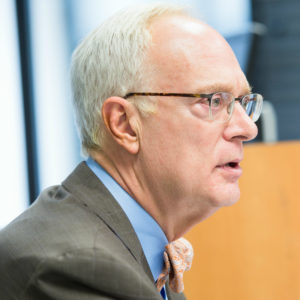Ideas & Public Policy
Examine the influence of ideas in some of our key policy debates.
August 2 – August 6, 2021
Washington, DC
In the penultimate week of the Political Studies Program, fellows will consider the intersection of theory and practice in our national politics, and particularly in our key economic debates. Led by National Affairs editor and policy expert Yuval Levin, this morning seminar will survey major domestic challenges confronting our country, giving fellows a better understanding of just what policymakers do, of how economics and politics interact, and of how to approach some of our most contentious national debates.
Images from U.S. Department of Energy | Smithsonian American Art Museum
Yuval Levin on reform conservatism
This course is part of our residential Political Studies Program. Fellows will participate in morning and afternoon seminar sessions over five weeks.

Yuval Levin is a Resident Scholar and Director of Social, Cultural, and Constitutional Studies at the American Enterprise Institute and the Editor of National Affairs magazine. Mr. Levin served on the White House domestic policy staff under President George W. Bush.

Yuval Levin is a Resident Scholar and Director of Social, Cultural, and Constitutional Studies at the American Enterprise Institute (AEI) and the founding Editor of National Affairs magazine. Prior to joining AEI, he was Vice President of the Ethics and Public Policy Center and EPPC’s Hertog Fellow.
He is a Contributing Editor of National Review and The Weekly Standard and a Senior Editor of EPPC’s journal The New Atlantis. Author and editor of numerous books, including The Great Debate: Edmund Burke, Thomas Paine, and the Birth of Right and Left (2013), The Fractured Republic: Renewing America’s Social Contract in the Age of Individualism (2016), and he most recently published A Time to Build: From Family and Community to Congress and the Campus, How Recommitting to Our Institutions Can Revive the American Dream (2020). His essays and articles have appeared in numerous publications including The New York Times, The Washington Post, The Wall Street Journal, Commentary, and others.
Before joining EPPC, Mr. Levin served on the White House domestic policy staff under President George W. Bush. He has also been Executive Director of the President’s Council on Bioethics and a congressional staffer. He holds a B.A. from American University and a Ph.D. from the University of Chicago. He is a recipient of a 2013 Bradley Prize for intellectual achievement.
Readings:
Questions:
Readings:
Questions:
Readings:
Questions:
Readings:
Questions:
Readings:
Questions:

Daniel DiSalvo
Daniel DiSalvo is a Senior Fellow at the Manhattan Institute’s Center for State and Local Leadership and an Assistant Professor of Political Science at The City College of New York-CUNY. His scholarship focuses on American political parties, elections, labor unions, state government, and public policy.

Greg Weiner
Greg Weiner is associate professor of Political Science, founding director of the Daniel Patrick Moynihan Center for Scholarship and Statesmanship, and provost at Assumption College. He is the author of American Burke: The Uncommon Liberalism of Daniel Patrick Moynihan.

Martha Bayles
Martha Bayles is an Associate Professor of Humanities at Boston College, where she teaches a year-long course titled, “From Homer to Dante” and various senior seminars. Her research centers around popular culture and cultural history. She has previously served as a lecturer at Harvard University and Claremont McKenna College.

Daniel Blumenthal
Daniel Blumenthal is the Director of Asian Studies at the American Enterprise Institute, where he focuses on East Asian security issues and Sino-American relations. Mr. Blumenthal has both served in and advised the U.S. government on China issues for over a decade.

Christian Brose
Christian Brose is a Senior Fellow at the Carnegie Endowment for International Peace and the Head of Strategy at Anduril Industries, prior to which he served as staff director of the Senate Armed Services Committee. He was also responsible for leading the production, negotiation, and passage of four National Defense Authorization Acts, which set policy and authorized spending for all U.S. national defense activities.

Matthew Kroenig
Matthew Kroenig is a Professor in the Department of Government and the Edmund A. Walsh School of Foreign Service at Georgetown University. A 2019 study in Perspectives on Politics ranked him as one of the top 25 most-cited political scientists of his generation. He has served in several positions in the U.S. Department of Defense and the intelligence community in the Bush and Obama administrations.

H.R. McMaster
H. R. McMaster is the Fouad and Michelle Ajami Senior Fellow at the Hoover Institution, Stanford University. Previously, he served as the 26th assistant to the president for National Security Affairs and as a commissioned officer in the United States Army for 34 years before retiring as a Lieutenant General. He is author of Battlegrounds: The Fight to Defend the Free World.

Christopher DeMuth
Christopher DeMuth is a Distinguished Fellow at the Hudson Institute in Washington, D.C. He was President of the American Enterprise Institute for Public Policy Research from 1986–2008 and D.C. Searle Senior Fellow at AEI from 2008–2011.